Abstract
OBJECTIVE: To estimate the net economic costs of dementia in Canada in 1991 by comparing costs related to elderly patients with dementia with those related to elderly people without dementia. DESIGN: Cost-of-illness study. DATA SOURCES: Most of the data analysed in this study were from the Canadian Study of Health and Aging (CSHA), in which 10,263 Canadians aged 65 years and over were randomly selected, surveyed and, when appropriate, given clinical examinations. Data on patients with dementia and on people without cognitive impairment (control subjects) were used for this analysis. Data on activities of daily living (ADLs) were taken from a separate study under the CSHA, in which the principal caregivers of the subjects in the prevalence study were interviewed. SETTING: Community and institutional settings in Canada, excluding those in the territories. PATIENTS: All patients with dementia 65 years and older as determined from the CSHA. Patients with dementia under 65 were also considered. OUTCOME MEASURES: Costs of paid and unpaid services in the community, care in long-term care institutions, drugs, hospitalization, diagnosis and research. RESULTS: The total annual net cost of dementia was estimated to be over $3.9 billion. Costs associated with elderly patients in the community were estimated to be $1.25 billion ($615 million for paid services, $636 million for unpaid services), whereas costs for patients in long-term care institutions were $2.18 billion. Costs were about $74 million for drugs, hospitalization and diagnosis, $10 million for research and $389 million related to patients under age 65. CONCLUSION: The annual net economic cost of dementia in Canada is at least $3.9 billion. The most significant component of the total cost was for care in long-term care institutions and for assistance with ADLs by professionals, family and friends in the community. The economic burden of dementia is significant not only for patients, their families and friends, but also for society.
Full text
PDF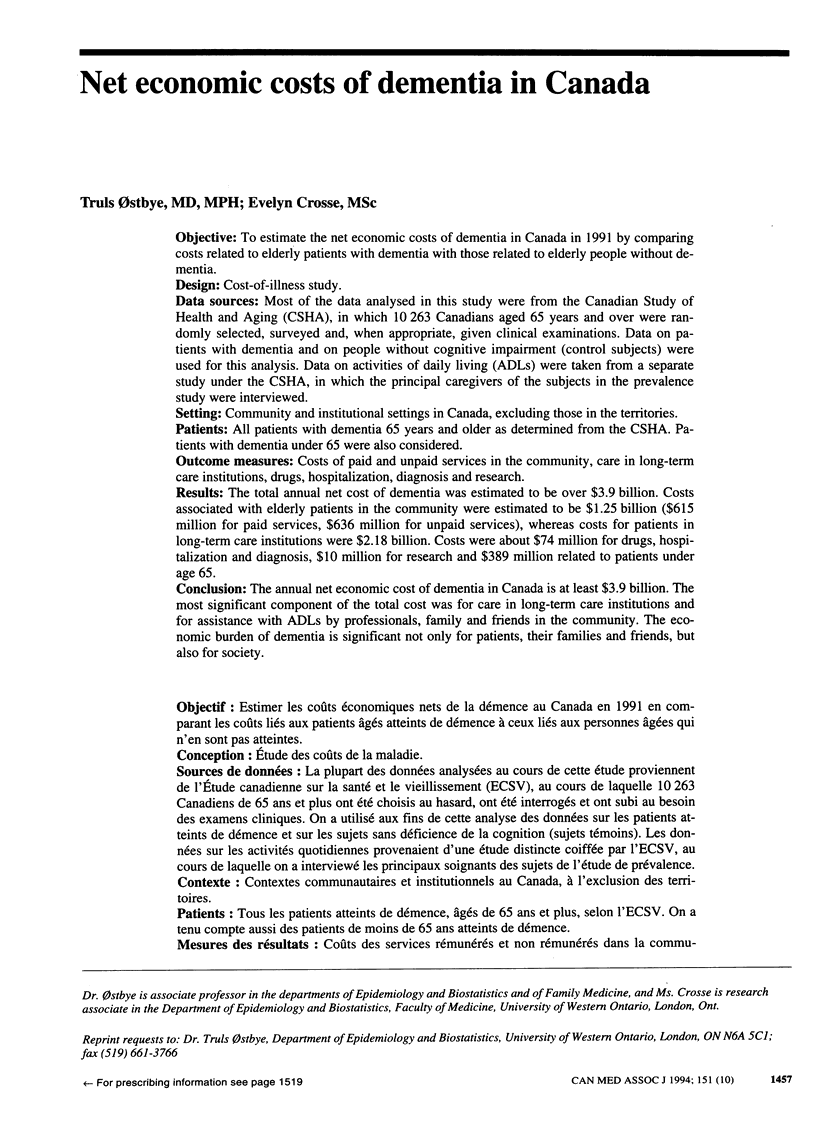
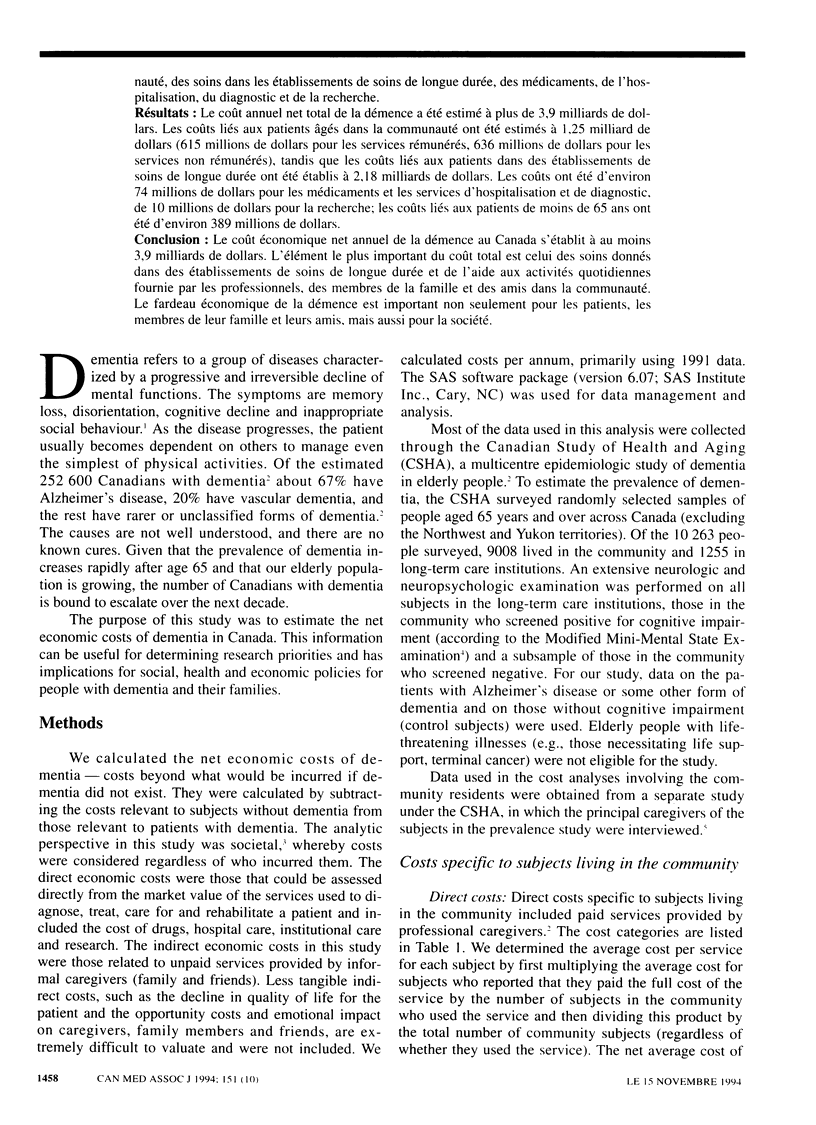
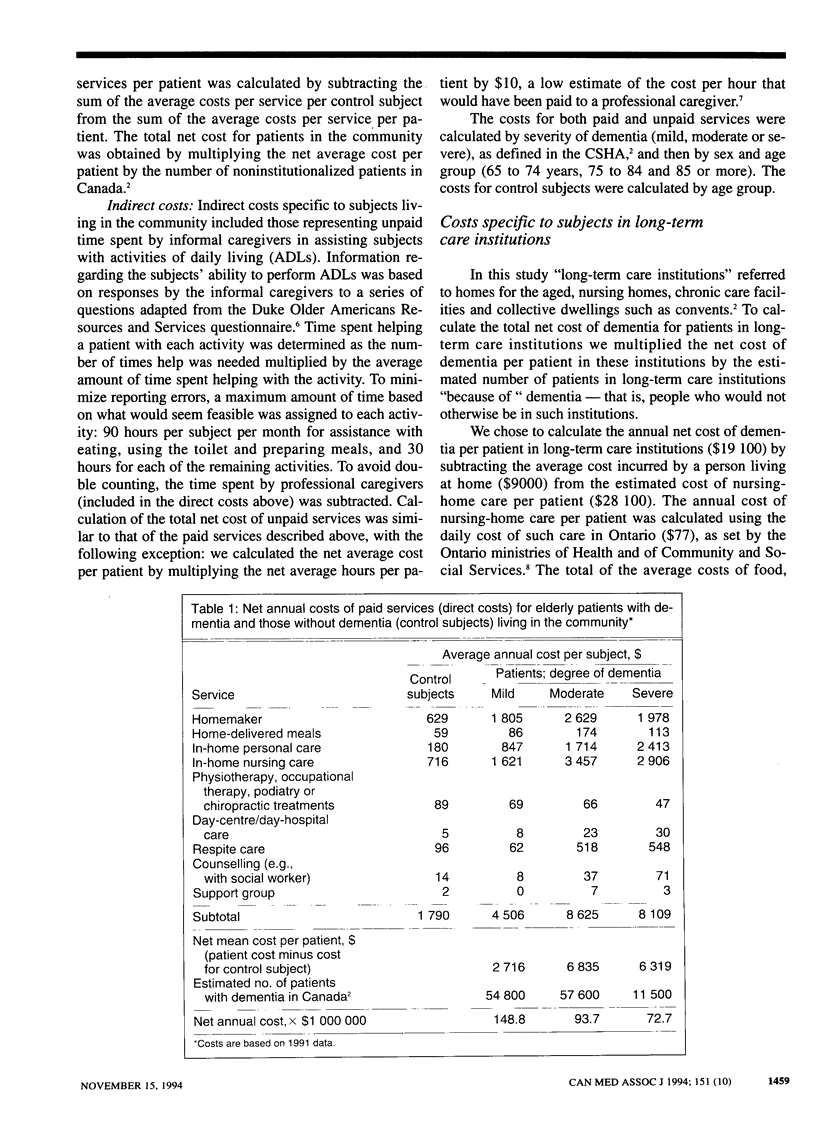
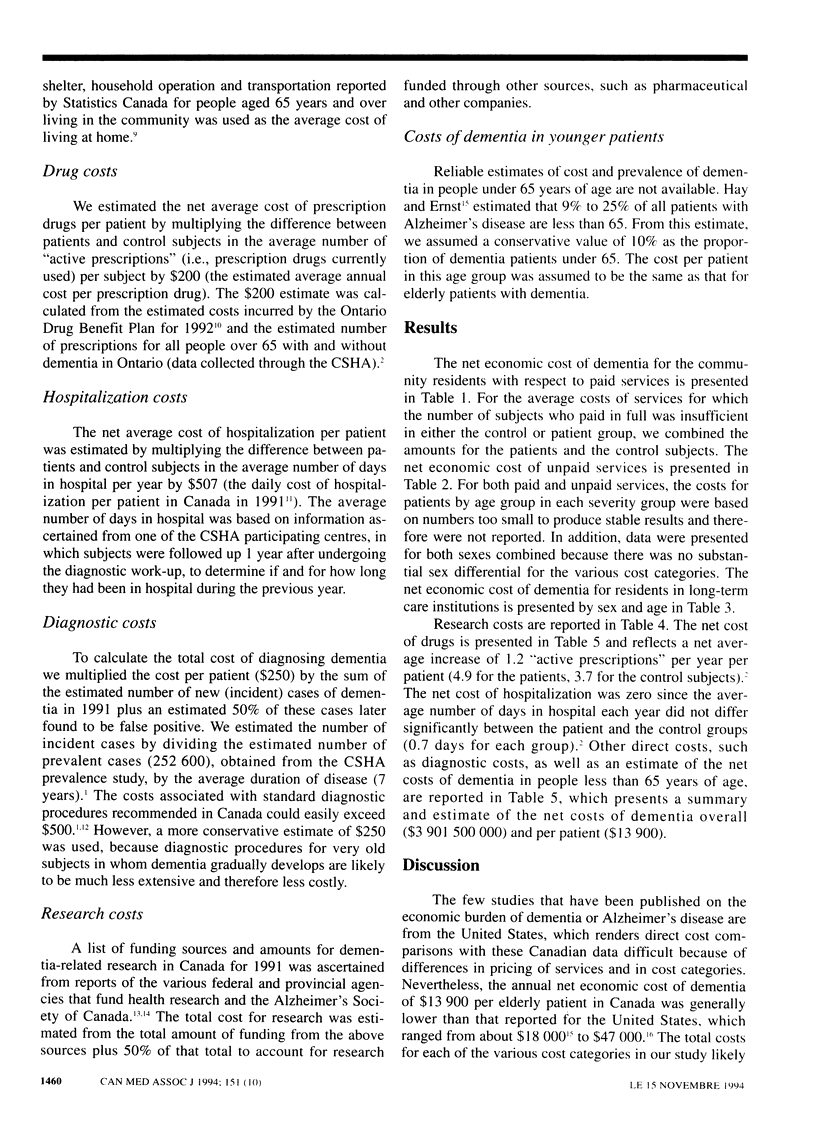
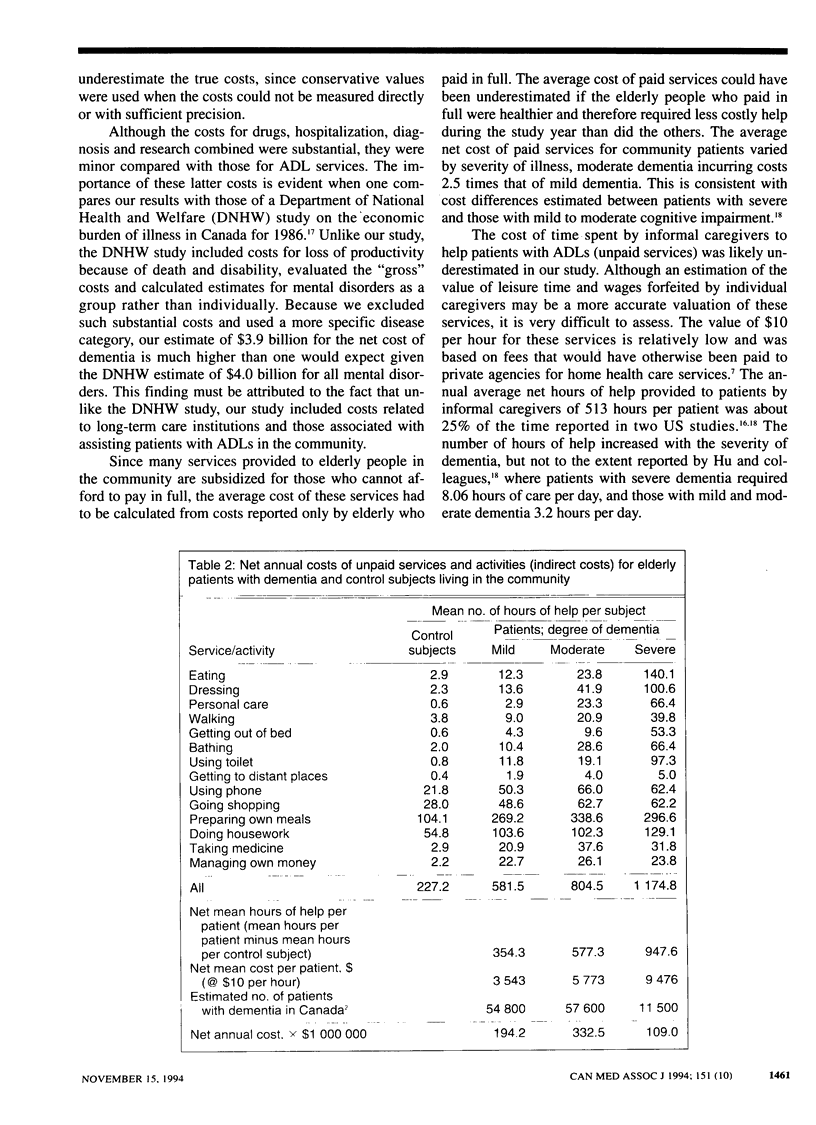
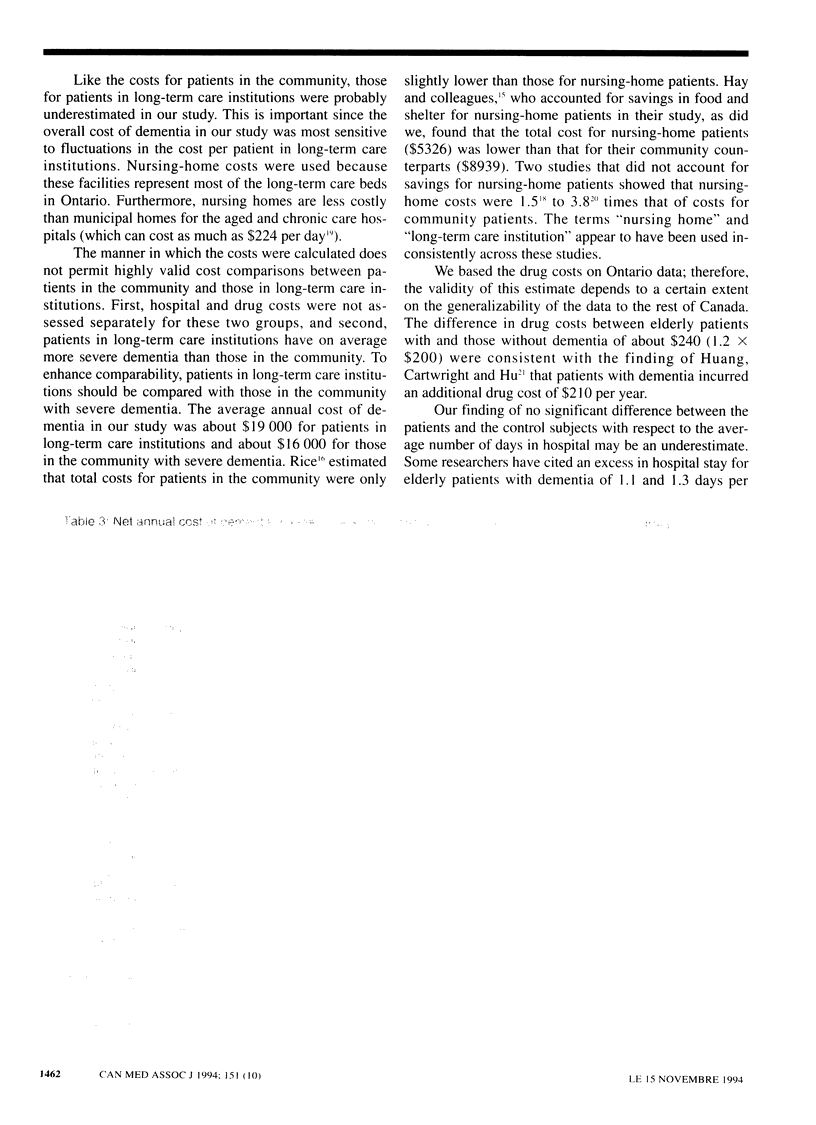
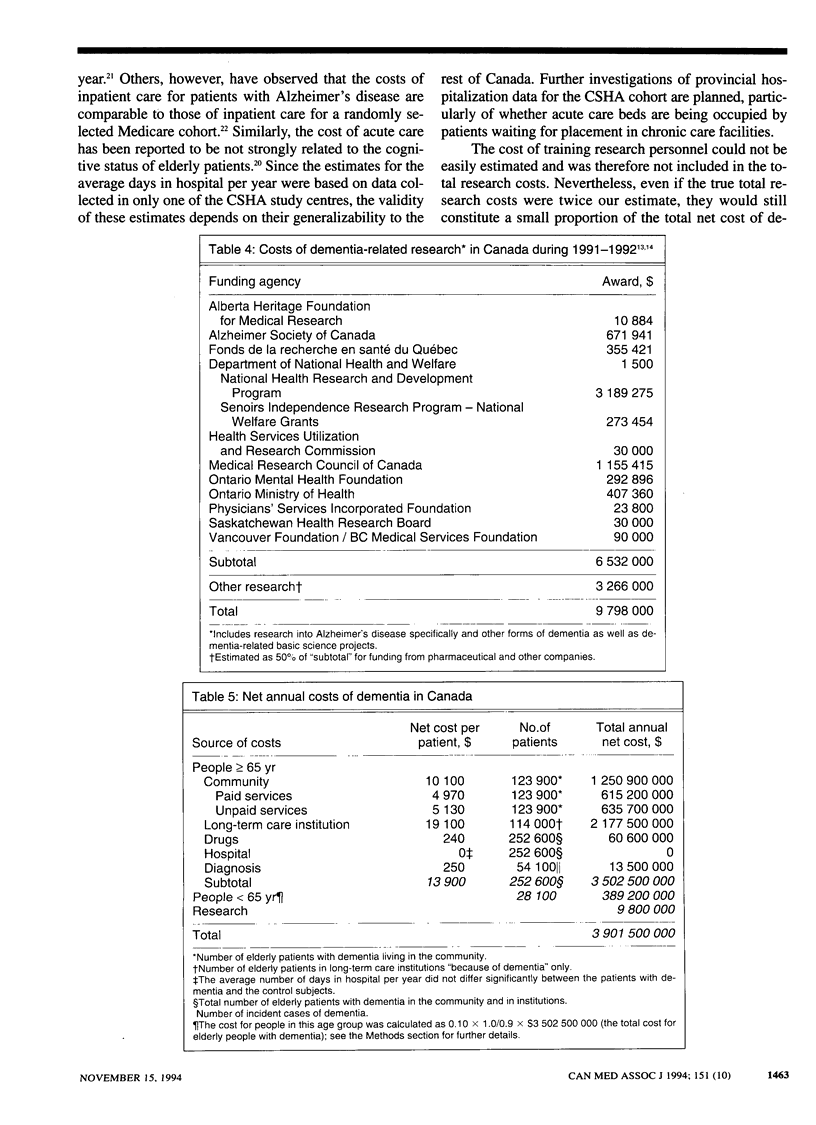
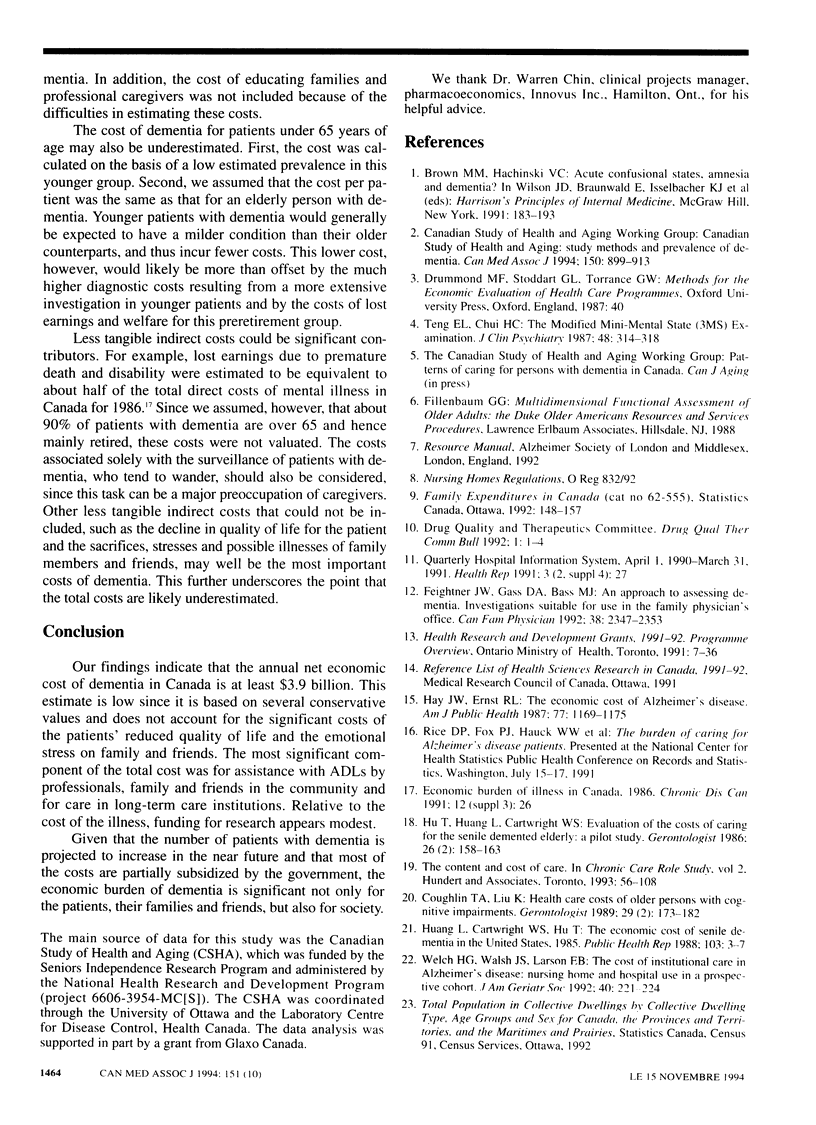
Selected References
These references are in PubMed. This may not be the complete list of references from this article.
- Coughlin T. A., Liu K. Health care costs of older persons with cognitive impairments. Gerontologist. 1989 Apr;29(2):173–182. doi: 10.1093/geront/29.2.173. [DOI] [PubMed] [Google Scholar]
- Hay J. W., Ernst R. L. The economic costs of Alzheimer's disease. Am J Public Health. 1987 Sep;77(9):1169–1175. doi: 10.2105/ajph.77.9.1169. [DOI] [PMC free article] [PubMed] [Google Scholar]
- Hu T. W., Huang L. F., Cartwright W. S. Evaluation of the costs of caring for the senile demented elderly: a pilot study. Gerontologist. 1986 Apr;26(2):158–163. doi: 10.1093/geront/26.2.158. [DOI] [PubMed] [Google Scholar]
- Teng E. L., Chui H. C. The Modified Mini-Mental State (3MS) examination. J Clin Psychiatry. 1987 Aug;48(8):314–318. [PubMed] [Google Scholar]
- Welch H. G., Walsh J. S., Larson E. B. The cost of institutional care in Alzheimer's disease: nursing home and hospital use in a prospective cohort. J Am Geriatr Soc. 1992 Mar;40(3):221–224. doi: 10.1111/j.1532-5415.1992.tb02072.x. [DOI] [PubMed] [Google Scholar]


